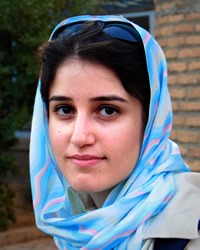Persian in Germany

Photo Source:
Hamed Saber - Flickr
Creative Commons
|
Send Joshua Project a map of this people group.
|
| People Name: | Persian |
| Country: | Germany |
| 10/40 Window: | No |
| Population: | 237,000 |
| World Population: | 48,380,900 |
| Primary Language: | Persian, Iranian |
| Primary Religion: | Islam |
| Christian Adherents: | 4.00 % |
| Evangelicals: | 4.00 % |
| Scripture: | Complete Bible |
| Ministry Resources: | Yes |
| Jesus Film: | Yes |
| Audio Recordings: | Yes |
| People Cluster: | Persian |
| Affinity Bloc: | Persian-Median |
| Progress Level: |
|
Introduction / History
By definition, Persians (also known as Iranians) are an ethnic group native to the region known today as Iran. The Persian language, called Farsi, is part of the Indo-Iranian language family, and is the official language of Iran. Dari, the language of the elite in Afghanistan, is a dialect of modern Farsi.
Persian groups began to settle in the territory that is now Iran as long ago as 1000 B.C. The loosely associated Persian tribes later became a more cohesive political unit under the Achaimenian Dynasty, and their unity soon made them the dominant ethnic group in the region.
For 1,200 years, Persia maintained a culture that became increasingly more complex and rigid, laying the foundation for a successful Arabian conquest in the seventh century. It was not until the Islamic revolution of 1979 that massive changes came both to Iran and to the Persian people.
The vast majority of Persians now live either in Iran or in one of the nearby Middle Eastern countries. However, small Persian communities can also be found in other nations all over the globe, such as Germany.
What Are Their Lives Like?
The first Persians to arrive in Germany set foot, with an envoy, in 1600. Several Iranian students immigrated to Germany, but it wasn't until 1885 the Persia's first diplomatic embassy was established in Berlin. In 1979 there was a revolution in Iran between the Sunni and the Shi'ite Muslims. This violent persecution of the Sunni Iranians led to many fleeing their homeland. This asylum continues today. By 1995 there were 106,997 Iranians living in Germany. Despite their relatively large number, Iranian Germans struggle to form a tight nit community that would provide emotional support. The Iranian Germans have acclimated to the German culture and partake in German traditions, etc.
What Are Their Beliefs?
Though they are officially Shia Muslims, many Iranians who have left Iran tend towards secularism, especially in the secularized environment of Europe. However, some have had the chance to hear about and be drawn to Jesus Christ.
What Are Their Needs?
The Lord is growing his Church in Iran, and many have come to faith in recent years, even among the Diaspora in Germany. Prayer is needed to sustain this growth in the days ahead.
Prayer Points
Pray that God will raise up faithful intercessors who will stand in the gap for the Iranian Diaspora.
Pray for a Disciple Making Movement to flourish among Iranians all across Germany.
Ask the Lord to call and send out people who are willing to share the love of Christ with Iranians.
Ask God to strengthen, encourage, and protect formerly Muslim Iranians who have come to faith in Christ. Pray they will reach out to others.